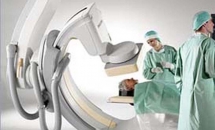Cancer is not a disease, but a collection of diseases with very different biological characteristics, in such a way that we could speak of more than 100 diseases. Furthermore, even a specific type of cancer – such as breast cancer – is heterogeneous. At present, at least five subtypes of breast cancer can be distinguished, which have different prognoses and should be treated with different therapies.
One of the types of breast cancer which, until a few years ago, had the worst prognosis is characterised by the existence of excessively high levels of a cellular component, a protein known as HER2. Currently, tumours positive for HER2 are treated with two types of specific drugs: one, monoclonal antibodies; the other, molecules that block the functions of HER2. Both types of drugs have greatly improved the survival rate of patients with breast cancer through HER2.
In spite of the success that the availability of anti-HER2 drugs has brought, a still excessively high percentage of breast tumours positive for HER2 do not respond to these drugs or, after an initial response, develop resistance to them.
In our laboratory, we have developed a diagnostic tool that enables us to identify when tumours will not respond to monoclonal antibodies against HER2, but they will respond to the blocking molecules.
In the lecture, the speaker will explain how this tool was developed, from its initial discovery to its patenting and development. Furthermore, attention will be paid to the suitability of personalising diagnosis and treatment in each type of tumour, with the aim of using only the most effective therapies for combating it, and to ensure the fewest side effects from same.
Cycle: Challenges of the 21st Century, IV the Voice of Medicine, I
Organized by: Residence for Researchers, Fundació Clínic Barcelona, Institut Biomèdiques August Pi i Sunyer, Resa
